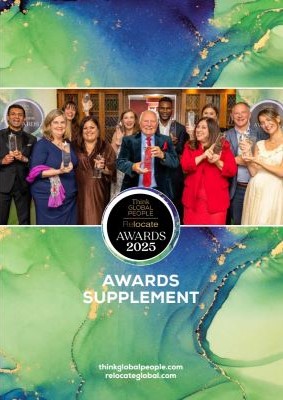Pro-Link GLOBAL immigration dispatch – Luxembourg, Singapore, Thailand, the United Kingdom, and Vietnam
Discover key changes to immigration regulations in Luxembourg, Singapore, Thailand, the United Kingdom, and Vietnam.

Luxembourg | Two New Laws Bring Major Changes to Immigration and Citizenship Rules
Luxembourg’s parliament passed two new sweeping immigration and citizenship statutes on February 8 and 9, bringing extensive changes to its laws impacting foreign workers, investors, students, and accompanying families, the standards for citizenship, and the procedures for refugees and asylum seekers. Included in the law are the provisions of the European Union (EU) Intra-Company Transfer Directive. Luxembourg now becomes the seventh nation to implement the EU Directive into its national laws, joining Spain, Romania, Hungary, France, the Netherlands, and Italy. While these changes represent a substantial revision of many aspects of Luxembourg’s overall immigration scheme, below is Pro-Link GLOBAL’s high-level overview of the significant portions of interest to companies and foreign employees working in the Grand Duchy. We expect authorities to develop detailed processes implementing the new provisions in the coming, and will report on developments as available.
Five New Residence Permits
Bill 6992 introduces five new work and residence permits applicable to foreign nationals for various activities in Luxembourg, including:- Intra-Company Transfers (ICTs) – The new law implements the provisions of the EU ICT Permit, allowing third-country nationals holding ICT permits issued by other EU member nations to use that permit for assignments in Luxembourg for 90 days without additional work and residence authorization. This ICT Permit option is available to qualified executives, experts, and trainees. For assignments of longer than 90 days, third-country foreign nationals can then apply for an ICT Permit in Luxembourg valid for up to three years for executives and experts, and up to one year for trainees.
- Investors – High net worth foreign nationals investing in certain business sectors in Luxembourg are now eligible for a renewable three-year permit. Investors have three options to qualify for this option: (1) maintain investment for five years of EUR €500,000 in a new or existing company in Luxembourg, (2) invest EUR €3,000,000 in an investment and management structure in Luxembourg, or (3) deposit and maintain for five years EUR €20,000,000 in a Luxembourg financial institution.
- Business Continuity Plans – The act also offers foreign companies a unique option to utilize Luxembourg in their business contingency plans. Companies based outside of the EU can now benefit from a new express procedure to send necessary staff to Luxembourg for the purposes of carrying on business in the event of a major incident in their country which interrupts business operations. Under this program, companies and their key employees will be pre-cleared and pre-authorized for entry to facilitate urgent relocation.
- Seasonal Workers – Foreign seasonal workers are now eligible for a new five-month permit specifically created for seasonal workers.
- Non-EU National Students – In a move to retain talented foreign students, the act also creates a new permit for non-EU students who complete their Masters or Doctorate degrees in Luxembourg and who desire to engage in related professional activity in the country. Graduating students will no longer be required to leave Luxembourg to apply for additional work and residence authorization.
Increased Blue Card Validity, and Immediate Family Accompaniment
The new law also benefits other highly-skilled third-country nationals by increasing the validity period for Blue Cards issued by Luxembourg from two to four years. At the end of the four years, holders will then be eligible to renew the permit for an additional four-year period.Family members of Blue Card and ICT Permit holders will now be permitted to accompany them on assignments and employment in Luxembourg immediately. The previous requirement that the primary permit holder have one year prior residence in the country before applying for dependent family residence permits has been removed, with minor limited exceptions. The Ministry of Foreign Affairs has also indicated that it is considering further action to expand this option to holders of other work and residence permits beyond the Blue Card and ICT Permit.Easier Path to Citizenship
The next day after Bill 6992 made its sweeping changes to the immigration routes, Bill 6977 passed the Parliament making the path to Luxembourg citizenship easier for foreign nationals desiring to live and work in the country permanently. The most significant change is the reduction from seven to five years of the required time of residence before a foreign national is eligible to apply for citizenship. Language and citizenship tests are still required but are being relaxed. Various simplified procedures, called “options,” were also implemented in eleven instances were citizenship will be easier, and simplified procedures for foreign nationals while still minors were implemented.Immigration Changes from Around the World
Singapore | Period for Work Pass Exempt Activities Lengthened, Slow Job Growth Continues
Effective immediately, the Singapore Ministry of Manpower (MOM) has lengthened the maximum period that foreign nationals may perform work pass exempt activities in Singapore from 60 days to 90 days. The 90 days is calculated per calendar year and may be used consecutively or cumulatively, i.e. multiple stays combing to equal 90 days. Exempt activities include conducting and organising seminars, participating in exhibitions, providing certain specialised services in the opening of a manufacturing facility or new business operation, and providing mediation and arbitration services. More details on the work pass exemption and a complete list of permissible activities are available on the MOM website here.In related news out of Singapore, the MOM recently released expected job growth figures for 2017, down substantially from previous years. While Singapore’s GDP growth made a surprising jump of 9.1 percent in the final quarter of 2016, finishing the year at 1.8 percent overall and beating earlier dour forecasts for the year, the ongoing slump in trade demand from China will continue to be a drag on its manufacturing sector. The concern over slower job growth and recent higher unemployment levels for local workers was apparent in Minister Lim Sway See’s comments about the recent job growth estimates, and he indicated that the MOM will be placing greater emphasis in the coming months on supporting local hiring. Pro-Link GLOBAL had already identified a trend in Singapore toward greater protection of its local labor market, and we expect this trend to continue translating into immigration policy reforms. For more details on recent immigration reforms in Singapore, download our free white paper “Singapore Moves to Protect Its Own Work Force” here, and look for future alerts as cover future changes.Thailand | New Online Visa Application System in Singapore
The Royal Thai Embassy in Singapore has implemented a new online visa application system. The new system is up and running and available now for use by companies sending employees from Singapore on assignment to Thailand. While use of the system is currently optional, starting April 1, use will become mandatory when applying for Thai visas from Singapore.Pro-Link GLOBAL is encouraging companies to begin creating logins and passwords for the new system now. The system allows applicants to submit applications and check the status online. Upon the application being reviewed, applicants print and sign a hard copy of their applications, and bring them to the Thai Embassy with their passports, supporting documents, and photos. Companies can establish their accounts in the new system and receive additional details at the Embassy website here.Related news:
- The Relocate Immigration sector homepage
- Pro-Link GLOBAL Immigration Dispatch: Brazil, Cambodia, Switzerland and Vietnam
United Kingdom | Process Improvements for Residency Applications of Non-EEA Family Members
Effective February 1, the United Kingdom Home Office has welcomed improvements to the process for non-European Economic Area (EEA) family members to file residency applications. EEA nationals who are applying for residency for their accompanying family members should now use the online process on the Home Office website. The following changes and benefits include:- The standard application forms for non-EEA nationals applying for residence certificates and cards are now mandatory. The prior paper application forms are no longer being accepted;
- A complete list of absences from the U.K. is no longer required in the online application. A statement that absences total no more than 180 days in a year is sufficient;
- P60 Year-end Tax Statements will be accepted as conclusive proof of employment and continuous residence, eliminating the need for voluminous additional documents; and
- The passport return service has been extended to include non-EEA family applicants, allowing them to retain their passports while their residency applications are being processed. For more details on the Passport Return Service, see our Immigration Dispatch of October 3.
Vietnam | New Rule on Intra-Company Transfer Work Permit Exemptions
A new Circular 35 (35/2016-TT-BCT) was recently issued by the Vietnamese Ministry of Industry and Trade, providing new guidance on Work Permit Exemptions (WPEs) for intra-company transfers (ICTs) of foreign employees to Vietnam. Circular 35 replaces the previous Circular 41 (41/2014/TT-BCT) for companies operating in one of the eleven service sectors specified in Vietnam’s World Trade Organization (WTO) commitments. While the changes from the old Circular 41 to the new Circular 35 are minimal, companies operating in these specified sectors should now follow the details of this new Circular 35.The only significant change brought by Circular 35 is that operating offices can now apply for Work Permit Exemptions (WPEs) for ICTs, whereas previously they could only apply for ICT Work Permits. All other substantive aspects of the current law and procedure remain unchanged, including:- Companies must have the appropriate CPC code in their business license in order to apply for WPEs. The new Circular 35 Annexes I and II list the appropriate CPC code designations;
- ICT employees must hold managerial, expert, specialist, or technician positions in order to qualify for WPEs; and
- ICT employees must have been working for the foreign company for at least 12 months prior to the assignment in Vietnam.
For related news and features, visit our Immigration section.
Access hundreds of global services and suppliers in our Online Directory Get access to our free Global Mobility Toolkit
Get access to our free Global Mobility Toolkit 


































